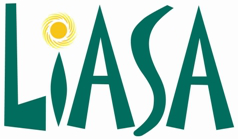Speaker
Ms
Santha Geduld
(University of Johannesburg)
Description
Share and share alike: the case study of the LAB
In an era of rapid growth of relevant technology for the delivery of information, sharing of output and resources becomes easier. However, this technology brings with it other burdens such as an ever increasing subscription price tag which makes information an extremely expensive commodity. In response to this ever increasing cost of information, libraries and associated institutions are sharing their output and resources through open access forums such as repositories. More recently, the benefit of improved visibility of output and resources has taken precedence over the cost factor.
The academic libraries are taking the lead role in terms of developing institutional repositories and sharing research output with information seekers of the world. The time is ripe for government and quasi-government institutions to get on the band wagon and develop repositories that will be benefit to the community and the country. This paper, investigates the potential of the Gauteng Justice Centres of the Legal Aid Bard (LAB) sharing its knowledge with similar type of institutions and all other types of information seekers. Institutions such as the LAB need to take-up leadership positions for the dissemination of knowledge that it resident within their specific institutions.
The paper is based on a master’s dissertation on the knowledge sharing practices of the Gauteng Justice Centres of the LAB. As a legal organization, the LAB is a knowledge-based organization and therefore generates substantial knowledge which should be shared. Hence, the core research question ?????.
The researcher used a questionnaire to solicit empirical data. Self-administered questionnaires were used to survey the views of the legal professionals regarding their knowledge-sharing practices. Three hundred and twenty (325) questionnaires were distributed, of which 143 were returned.
There were a number of findings that were gleaned from the analysis process which includes that while knowledge-sharing and knowledge management took place at the LAB, it was not guided by a strategy of the organization; rather it took place on an ad hoc basis. It was nevertheless woven into the daily activities of the respondents. Further, knowledge management was listed in the five year strategic plan of the LAB. This information, however, was not widely communicated throughout the organization. Had the library been central to the access of knowledge, this information could have communicated organization-wide.
As indicated, academic libraries are taking the lead in the growth and development of repositories to off-set exorbitant subscription costs and more recently to improve the visibility of the research output of the respective academic institutions. It is incumbent on institutions like the LAB to join this open access movement and share its knowledge. The LAB and other legal aid boards throughout South Africa need to share their knowledge.
Primary author
Ms
Santha Geduld
(University of Johannesburg)
Co-author
Mr
Roy Raju
(Durban Institute of Technology)

